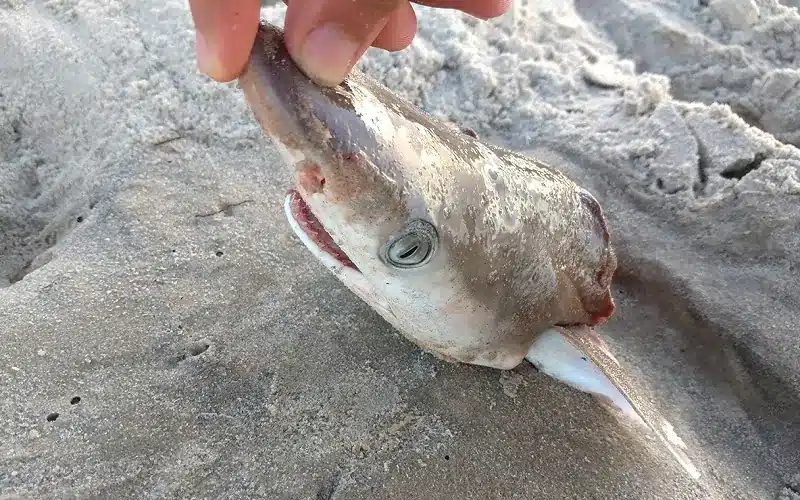In 2023, the film “Cocaine Shark” and documentary “Cocaine Sharks” highlighted the issue of wildlife being exposed to drugs and other pollution. However, the evidence for coke-addled sharks was inconclusive. Now, scientists in Brazil report the first proof that the animals are indeed exposed to cocaine. Thirteen sharpnose sharks taken from coastal waters near Rio de Janeiro had traces of the drug in their muscles and livers, researchers report in Science of the Total Environment.
Cocaine has been detected in sewage and rivers in many countries, including Brazil. Around Rio de Janeiro, the drug probably enters the sea directly in drainage from illegal labs where cocaine is refined. It also comes from drug users via untreated sewage. Cocaine packs lost or dumped by traffickers could also be a source. Brazilian sharpnose sharks (Rhizoprionodon lalandii) spend their entire lives in coastal waters, so Saggioro figured they would be among the species most likely to take up the drug, either directly from seawater or from the fish they eat—or possibly from drifting packages.
Enrico Mendes Saggioro, an ecotoxicologist with the Oswaldo Cruz Institute, and his colleagues were curious whether sharks might be exposed to cocaine. Brazilian sharpnose sharks (Rhizoprionodon lalandii) spend their entire lives in coastal waters, so Saggioro figured they would be among the species most likely to take up the drug, either directly from seawater or from the fish they eat—or possibly from drifting packages.
One concern is that toxicants in the sharks’ livers can hinder production of vitellogenin, which becomes the yolk needed for egg cells. All females in the study were pregnant, although the consequences of cocaine exposure for the fetuses are unknown. Additionally, it is still unclear whether the drug affects shark behavior.
Cocaine can be toxic to mollusks, crustaceans, and bony fish. Previous laboratory studies have shown environmentally realistic concentrations can cause various signs of damage, such as DNA fragmentation and cell death in zebrafish embryos. Only a handful of other studies have tested wild fish for illegal narcotics.




